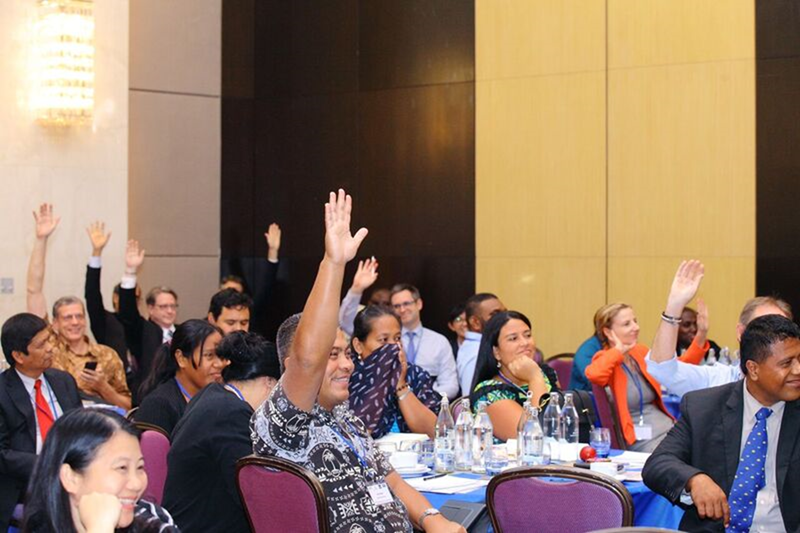
Building sustainable financing and resilient systems for health security in East Asia and the Pacific
May 18, 2018
The East Asia and Pacific region is vital to global pandemic preparedness. The region has been the epicenter of emerging and re-emerging infectious diseases. China and Southeast Asia alone accounted for approximately 90 percent of SARS cases and two-thirds of the human cases of avian influenza in the world. These outbreaks are driven by several socio-economic, demographic, environmental, and ecological factors, including close contact between humans and animals, encroachment with wildlife, high population density, rapid urbanization, high growth rates, and climate change.
Recognizing the threats, several countries in the region have made tremendous efforts to tackle emerging infectious diseases; however, many challenges remain in ensuring adequate and efficient sustainable financing and systems for health security. Thus, it is essential that all involved in building sustainable financing and resilient systems for health security take time to forge clear directions and explore new avenues for realising this important work.

Such was the purpose of the side meeting, “Building Sustainable Financing and Resilient Systems for Health Security,” at the Prince Mahidol Award Conference (PMAC) in Bangkok earlier this year.
The various sessions over the two-day meeting included engaging presentations and lively discussions among participants from the region. They helped think through the best approaches to building sustainable heath security in the region, namely:
- making an economic case for investment in health security
- strengthening human health and animal health systems, and the links between the two
- engaging the private sector in the health security dialogue, and
- exploring new forms of financing such as pandemic insurance.
Making the case to governments and their financial officials that investing in pandemic preparedness would protect countries from great economic loss and potential instability resonated with the audience. They agreed that slow response and inadequate preparedness can have severe socio-economic impacts on countries as demonstrated by the West Africa Ebola crisis of 2014-2015. The World Bank estimated US$2.2 billion in projected combined economic losses in the GDP of Liberia, Guinea and Sierra Leone in the aftermath of that outbreak.